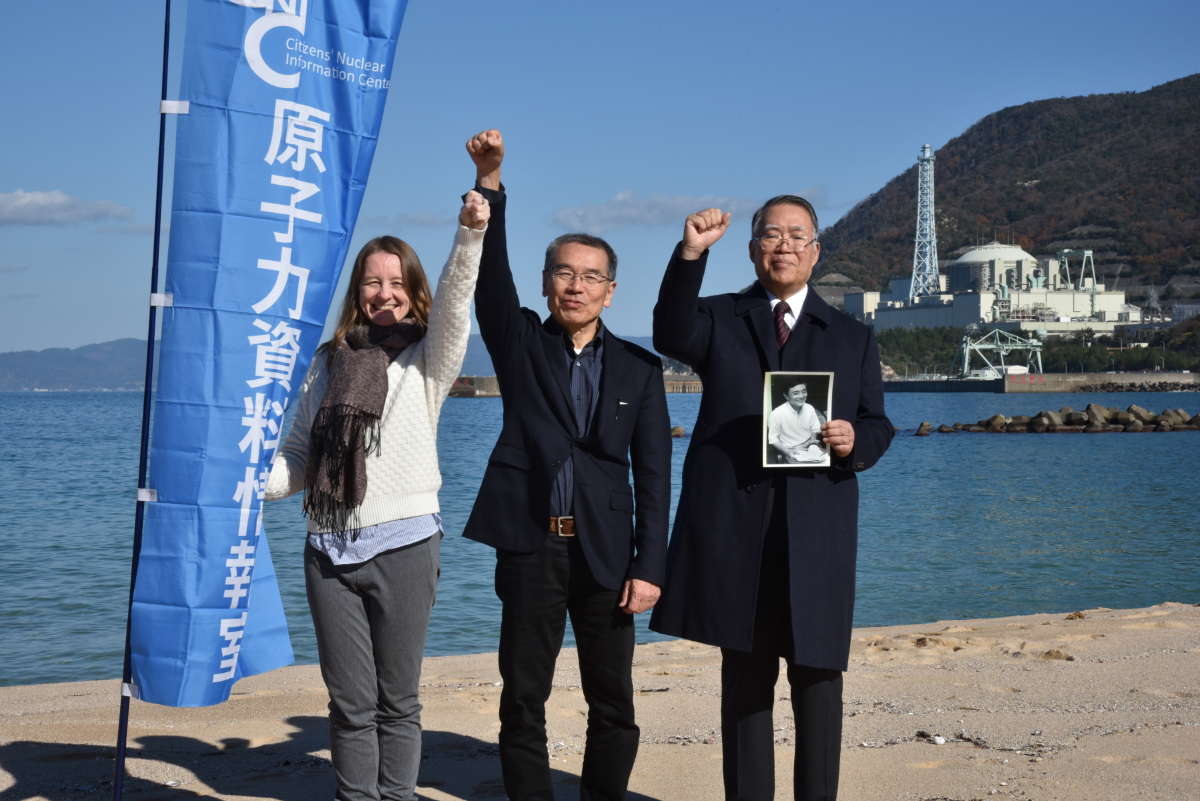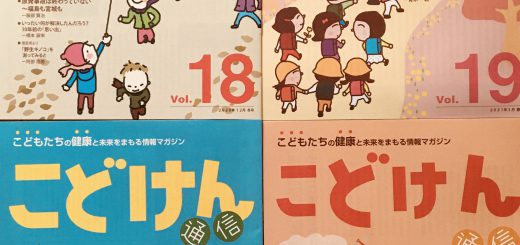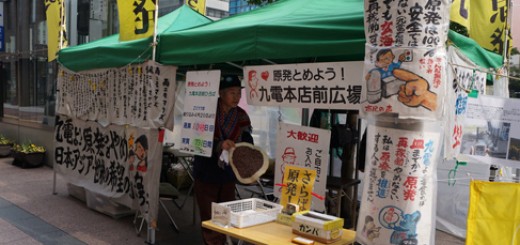Who’s Who Special Edition: Ban Hideyuki ~ Saddened by the Passing of Ban Hideyuki
By Yamaguchi Yukio (CNIC Co-Director)
Ban Hideyuki passed away on June 10 at the age of 72 years and 8 months. It was too early a death. I will not be able to celebrate the final day of nuclear power with him. As one who has the same objective of living as he had, I am deeply saddened.
It was on April 8 that Mr. Ban was transferred to the palliative care department of St. Luke’s Hospital. Warmly attended on by his partner, he fought against cancer for two months.
As I recall, in the mid-1970s, when Mr. Ban finished university studies, the passionate atmosphere of the heyday of university protests and anti-Vietnam war movements remained, and antipollution and environmental conservation campaigns and protests by citizens against regional development projects captured the minds of many young people.
Citizens were very conscious about pollutive substances existing in the daily-life environment and tried to review their lifestyle. Rachel Carson’s Silent Spring was popularly read at gatherings, and movements against synthetic detergents spread nationwide. Lessons learned from the Minamata disease and Ashio mineral poison incident were shared across the country through citizens’ movements as well as campaigns by consumers and ordinary citizens. It was only natural that the consumer cooperative movement emerged.
Having studied sociology at Waseda University, Mr. Ban began to commit himself to the consumer cooperative movement. He intended to be part of the wave of the times. It was a natural consequence that Mr. Ban, being engaged in the consumer cooperative movement and then in the legislation movement for the abolition of nuclear power generation, became acquainted with Takagi Jinzaburo.
Dr. Takagi, who began his carrier as a nuclear chemist, believed from the end of the 1960s that science should not be exclusive to specialists and should not be limited to scientists; it should be shared with citizens. In the 1970s, he started to act to put this philosophy into practice.
In 1979, the Three Mile Island nuclear power station accident occurred, followed in 1986 by the Chernobyl nuclear disaster in the Soviet Union. “Nuclear power reactors and humans cannot cohabitate,” — this belief spread widely in society. After joining CNIC in 1990, Mr. Ban, having a good-natured, genuine character and unshakeable conviction, dedicated himself single-mindedly to the movement against nuclear power generation and for freedom from nuclear power.
On March 11, 2011, the magnitude 9.0 Tohoku Pacific Coast Earthquake occurred. It resulted in the Tokyo Electric Power Fukushima Daiichi Nuclear Power Station disaster, completely destroying the myth that “nuclear power generation is safe.”
What is required to achieve freedom from nuclear power? In line with the concept of trans-science, Mr. Ban believed that it is a must to talk comprehensively with organizations with different opinions, and he made the utmost efforts to enable this. At various governmental councils, he delivered carefully prepared opinions based on the logics and ethics of science and based on the concept of how citizens should live, impressing even the council members who promoted nuclear power. Before the COVID-19 pandemic, I sat in on most of the governmental council gatherings Mr. Ban attended and was often moved by his patiently unfolding advocacy.
Here is a final message from Mr. Ban, who was already aware that he would pass away ahead of us:
“I have an idea I want everyone to discuss, and would like to present the issue. A good, important characteristic of CNIC is that it can discuss matters with other organizations having different ideas about nuclear power, based on scientific evidence. I believe organizations that can do this are rare in Japan. I understand CNIC to be one such rare organization.
I believe that some organizations in favor of nuclear power have doubts about the way nuclear power is being promoted today. It is necessary to maintain preparedness to exchange opinions with such organizations and cooperate with them where possible.
I would like all CNIC staff and Citizens’ Commission on Nuclear Energy members to build up future activities from this point of view. (April 4, 2024)”



